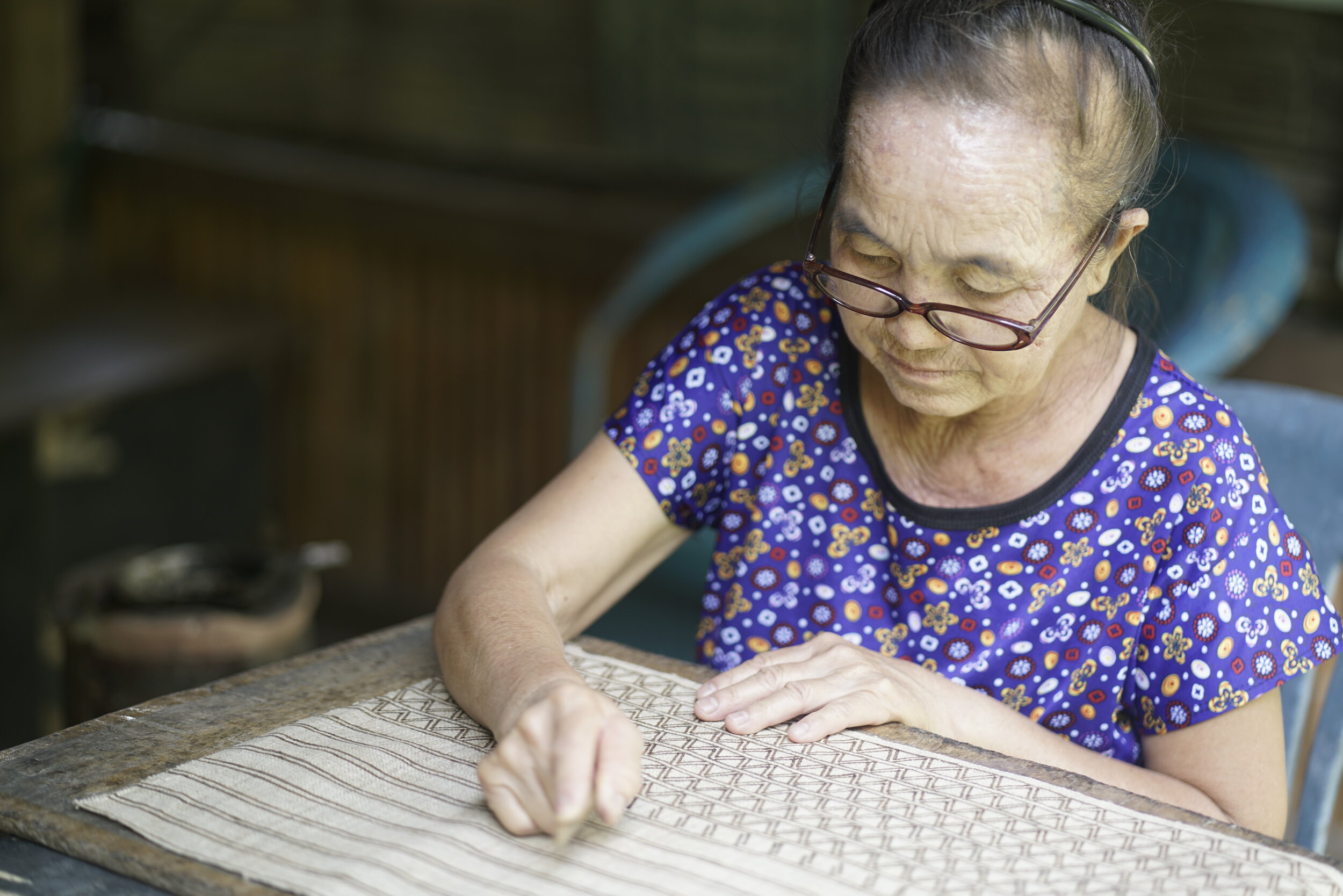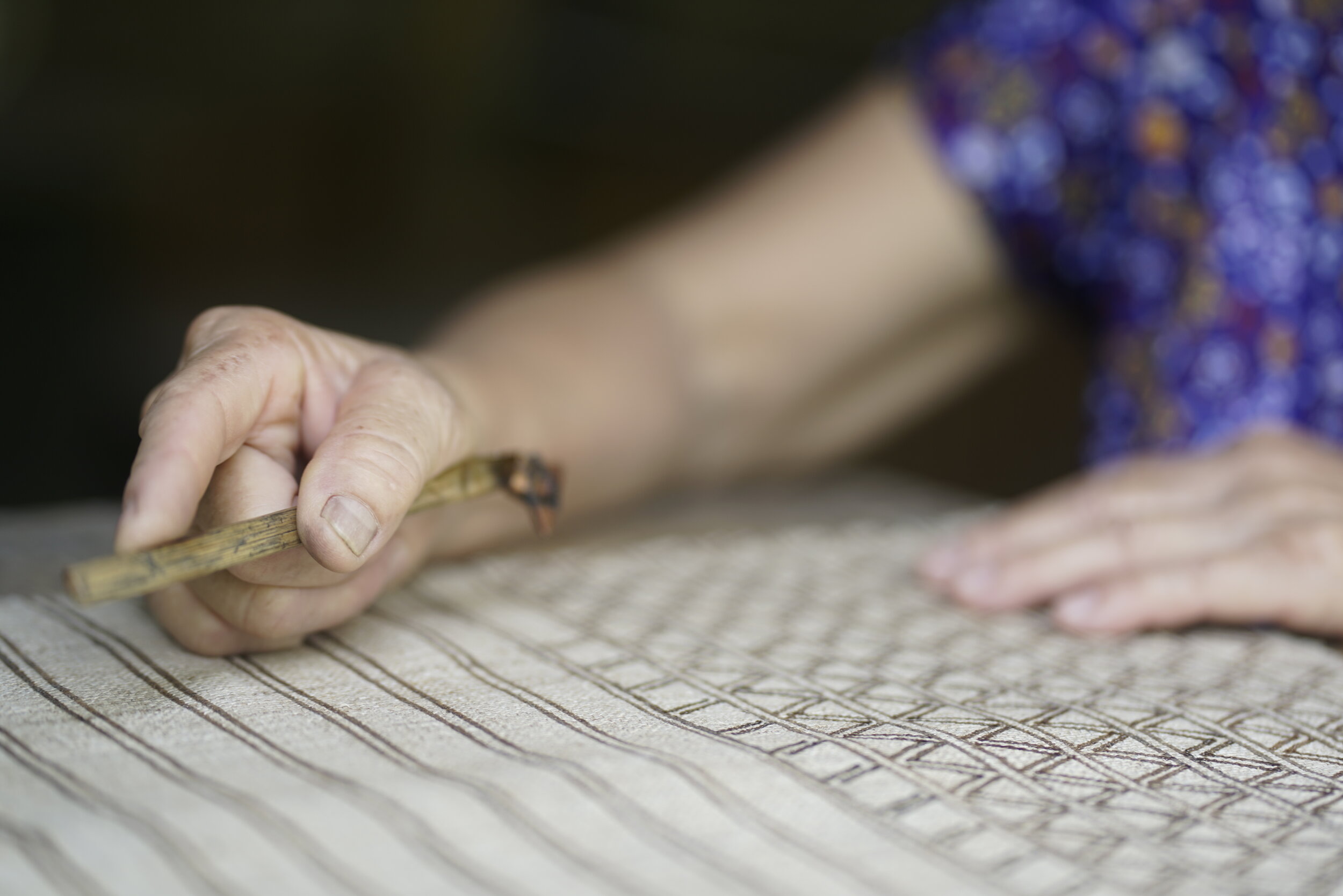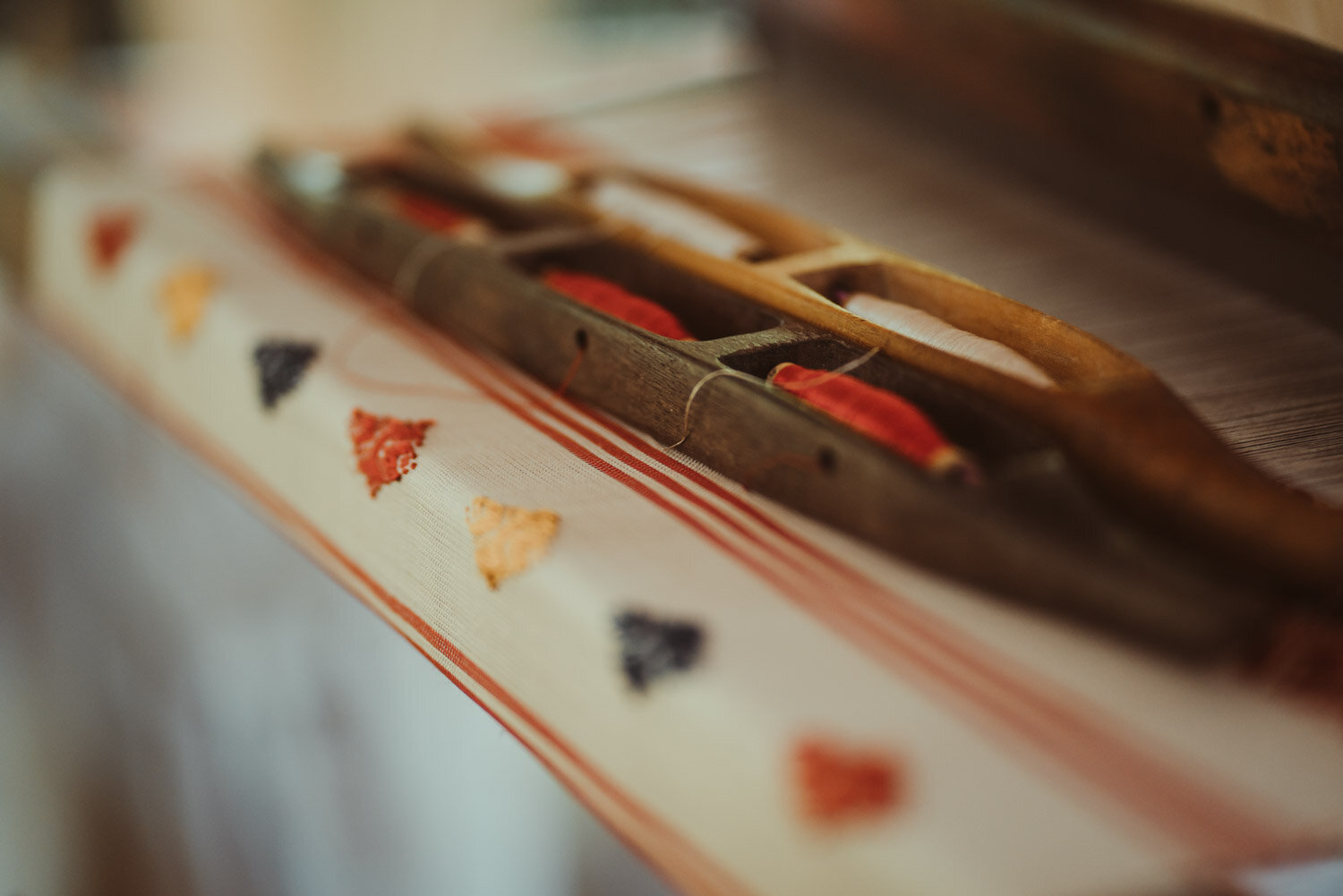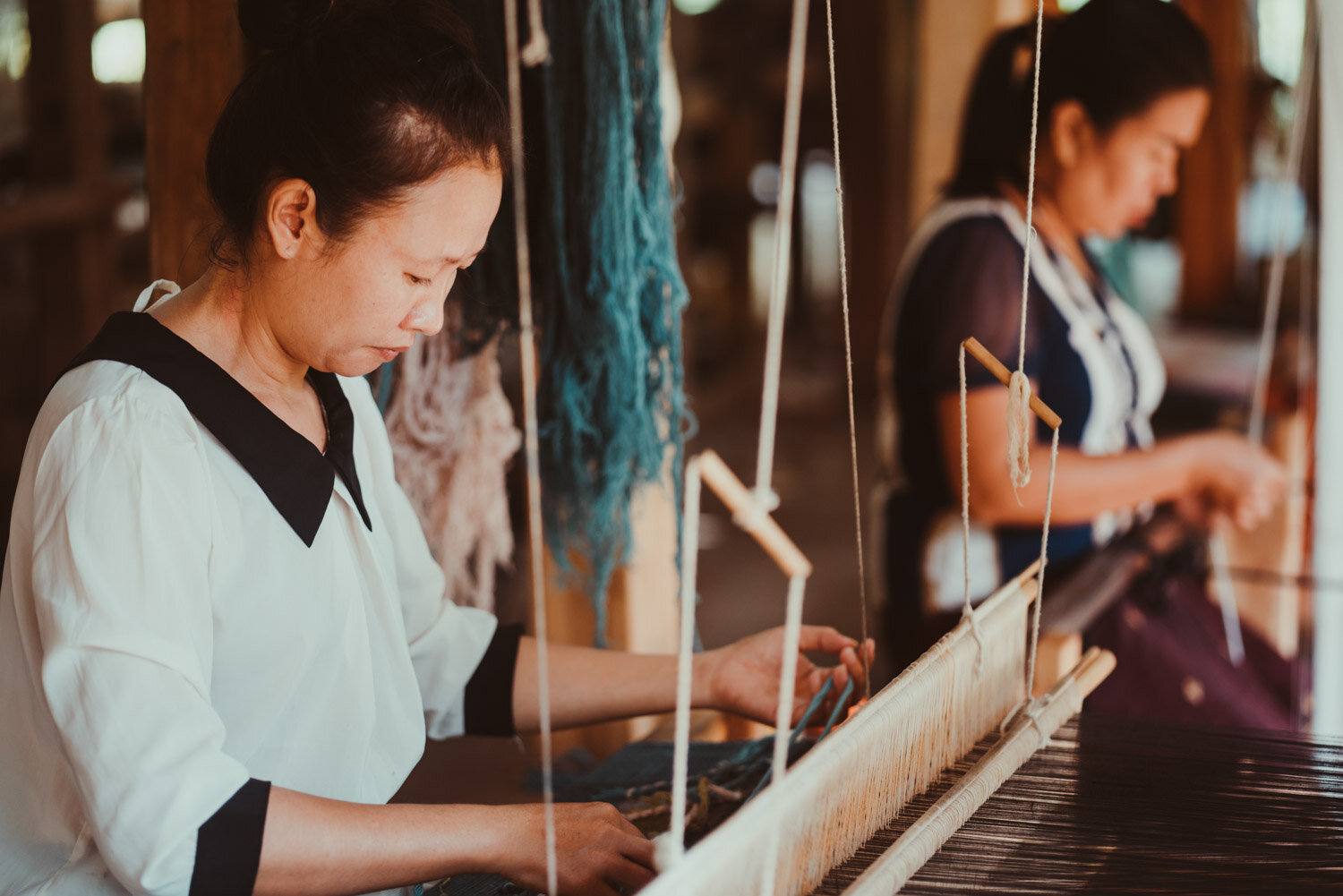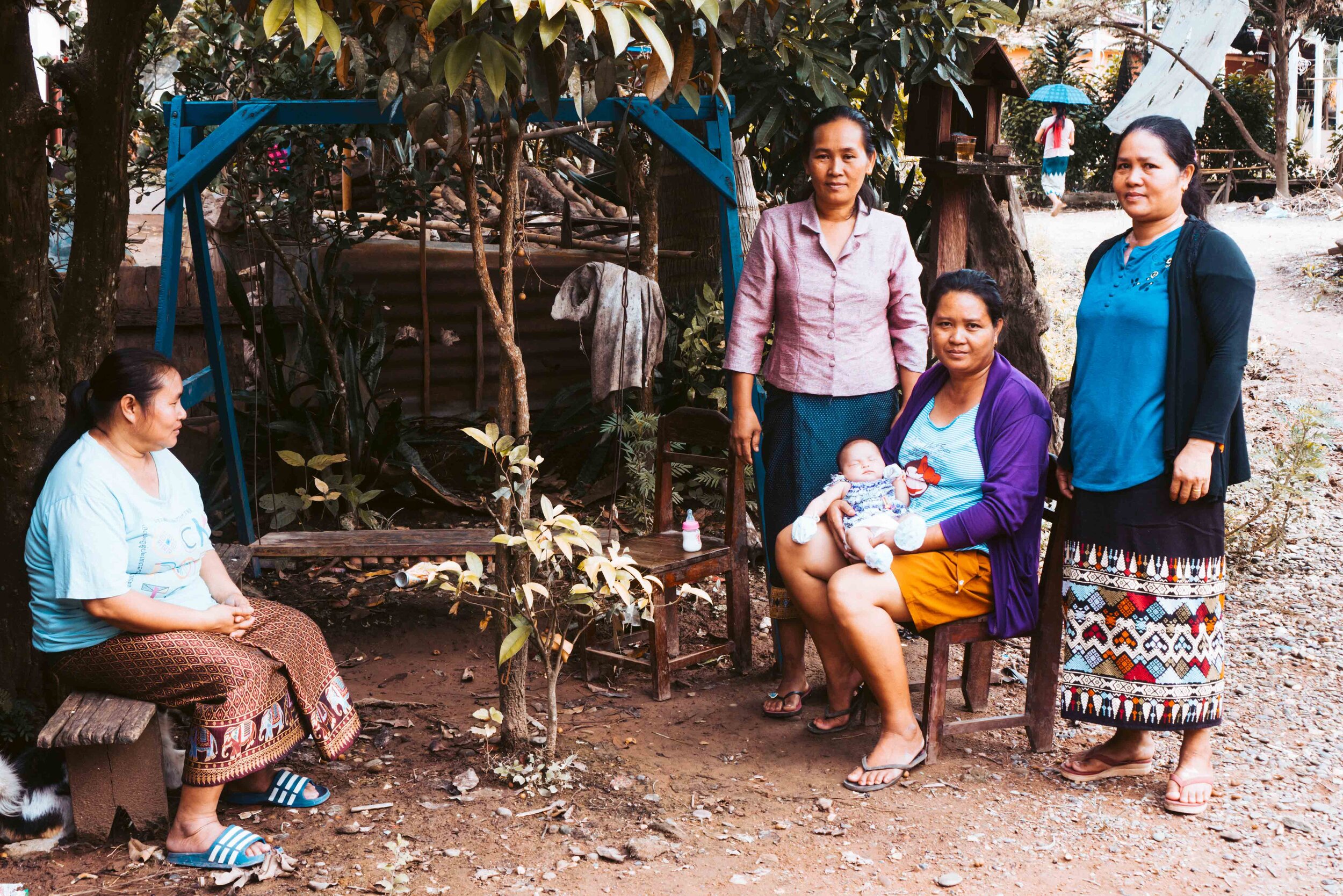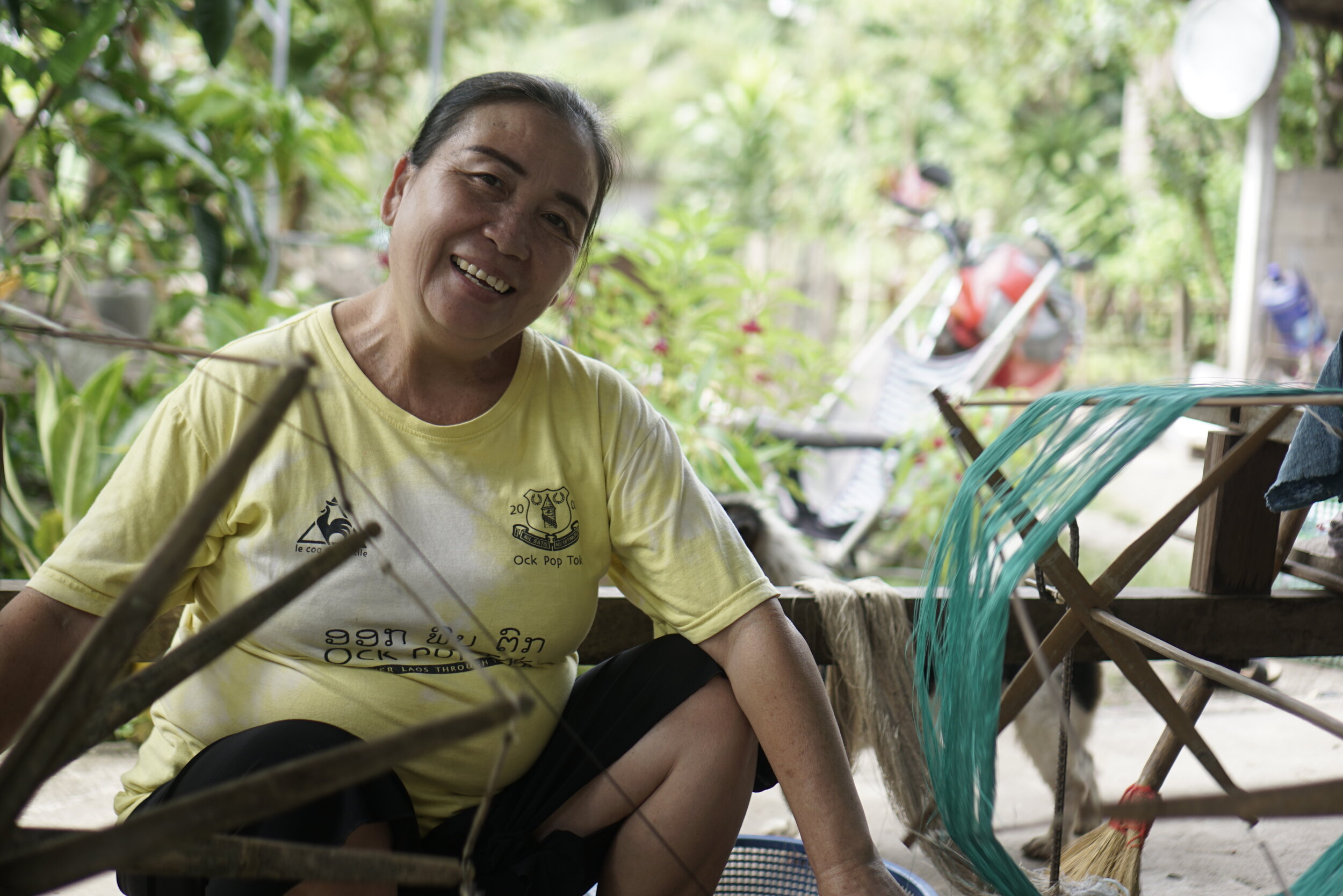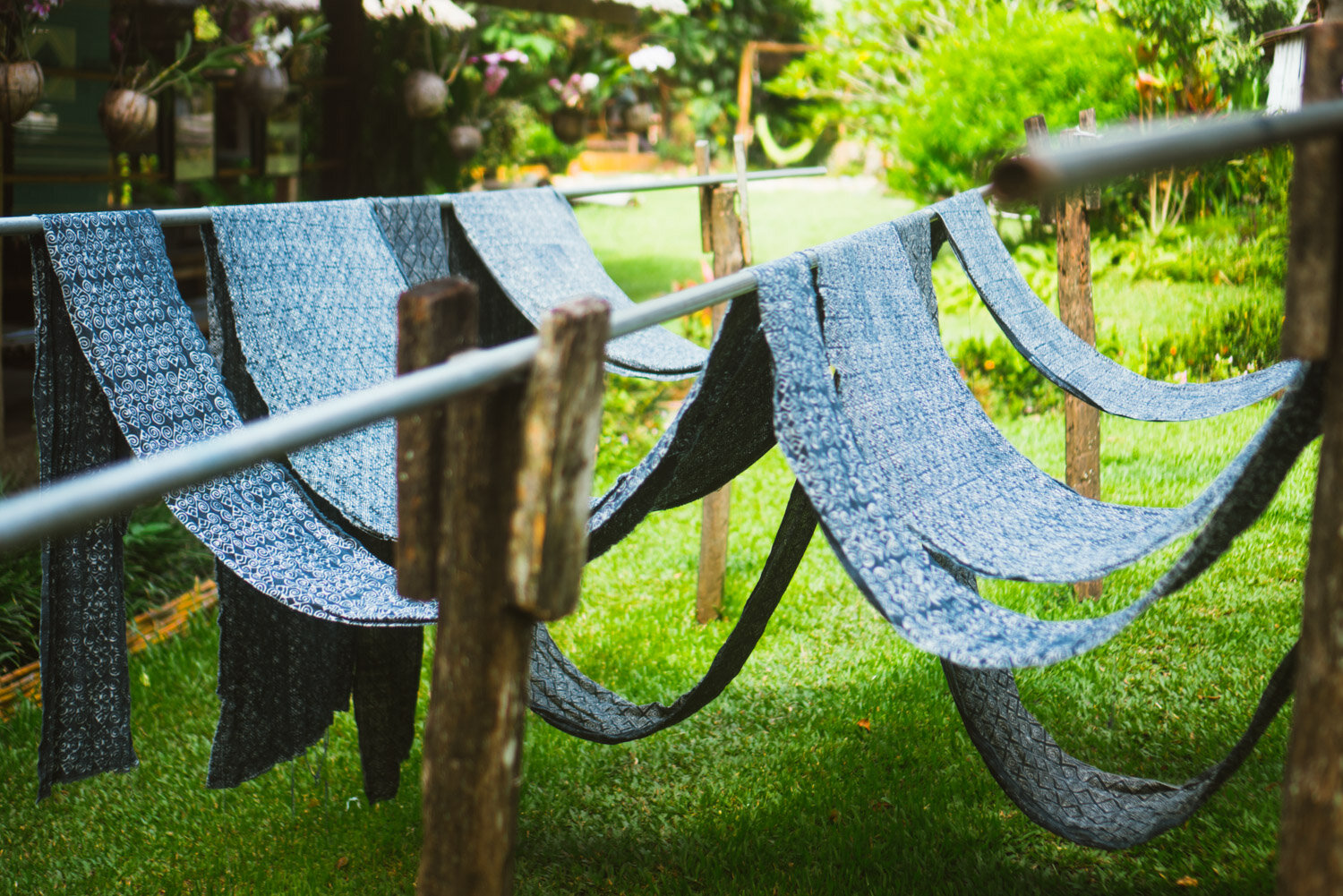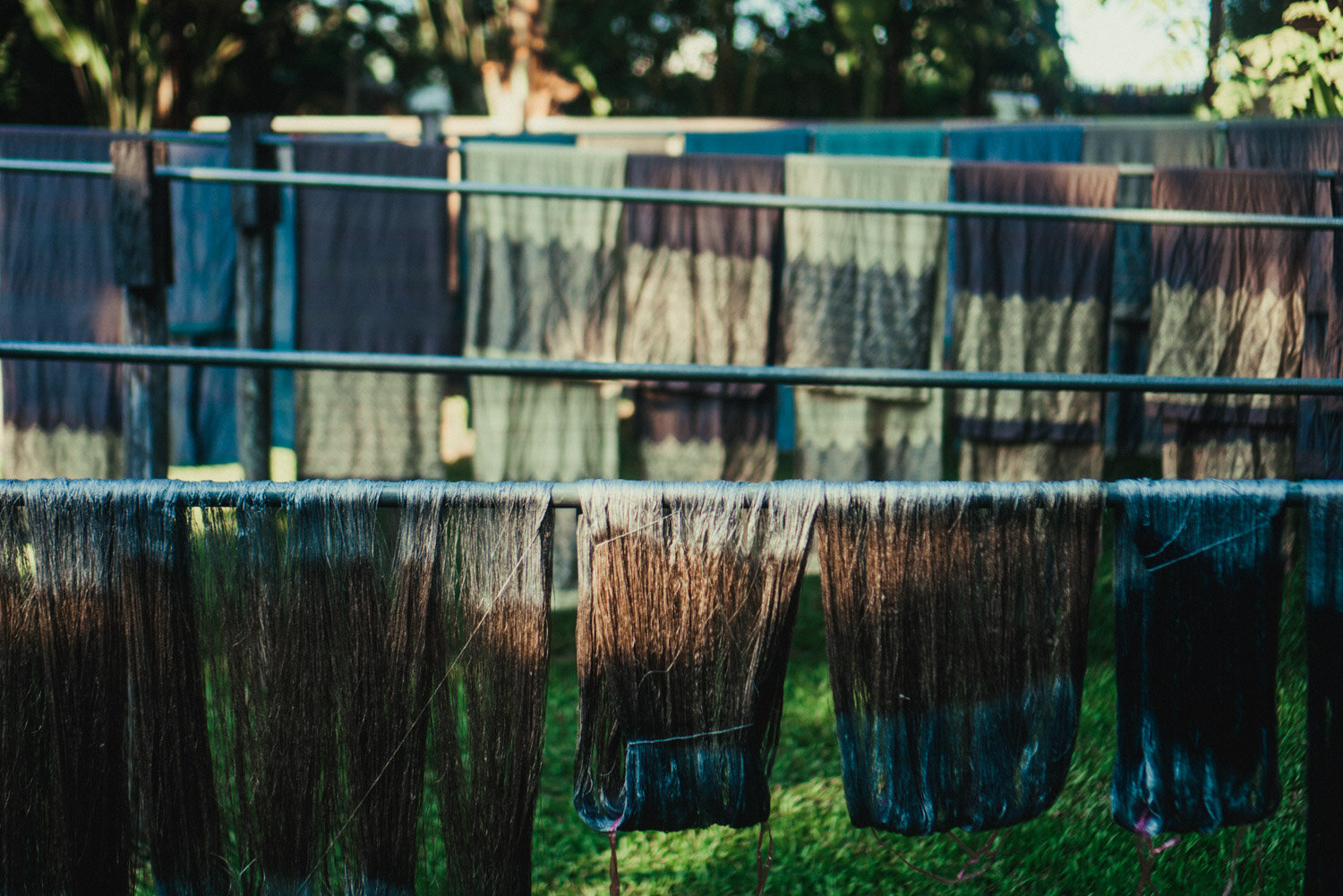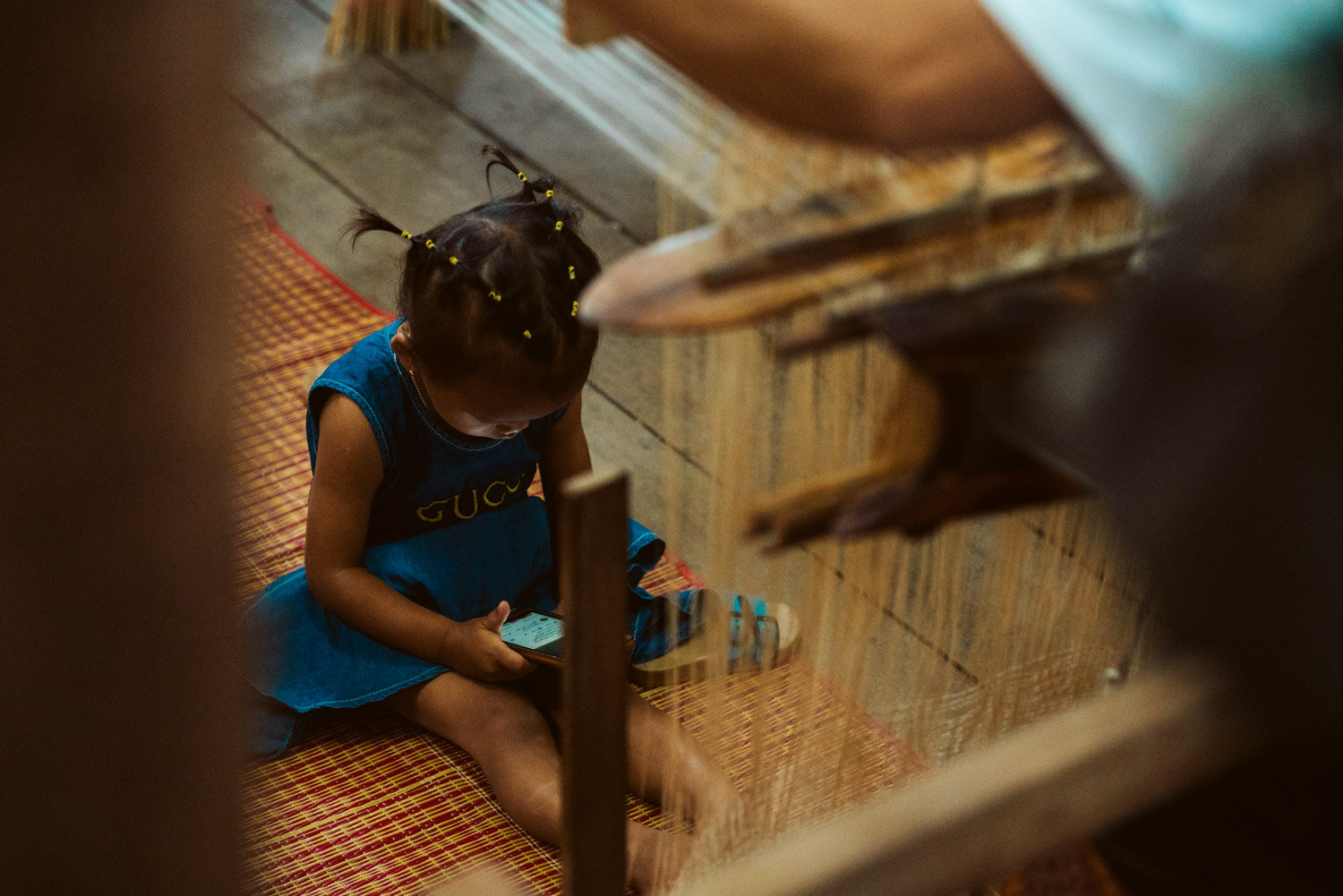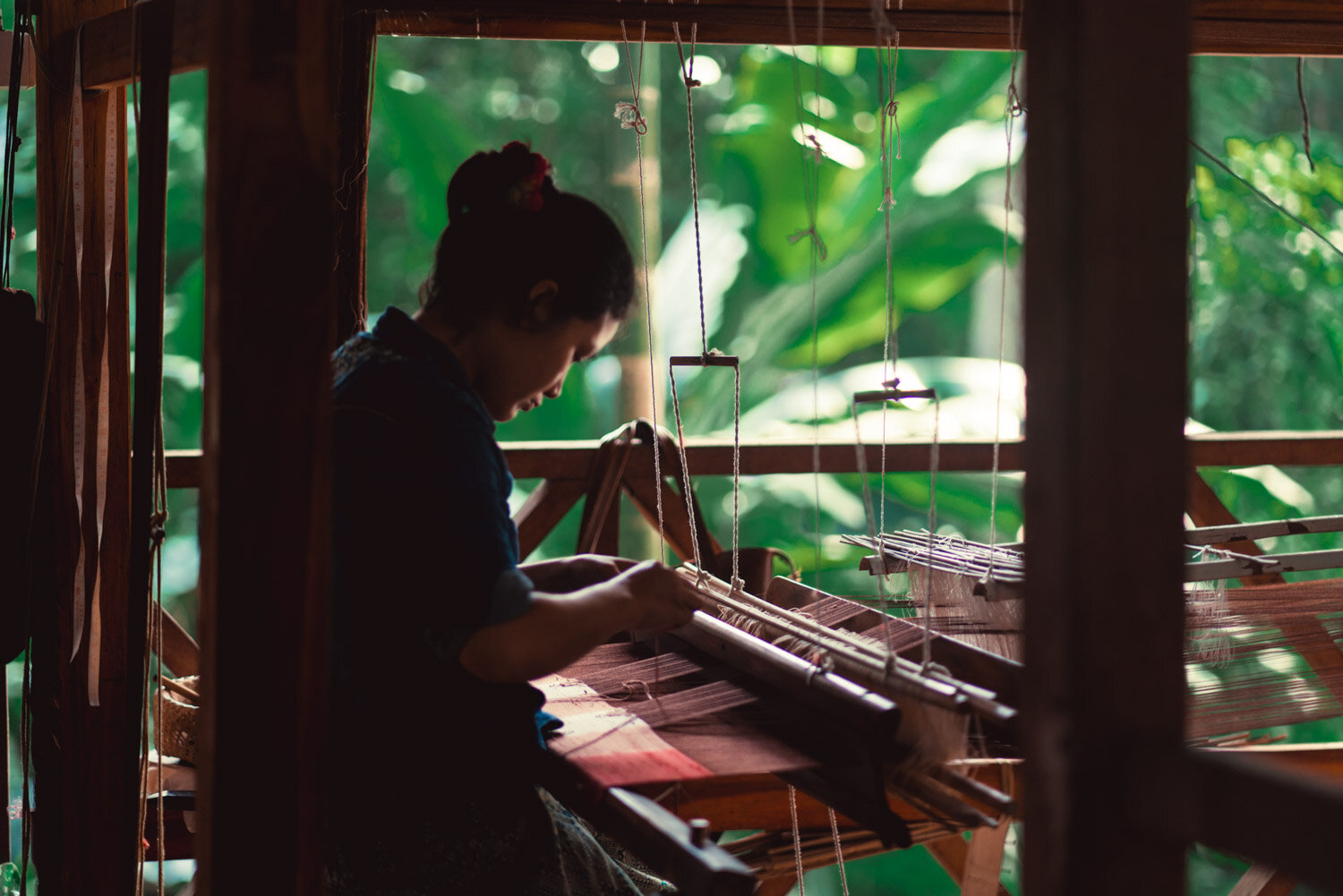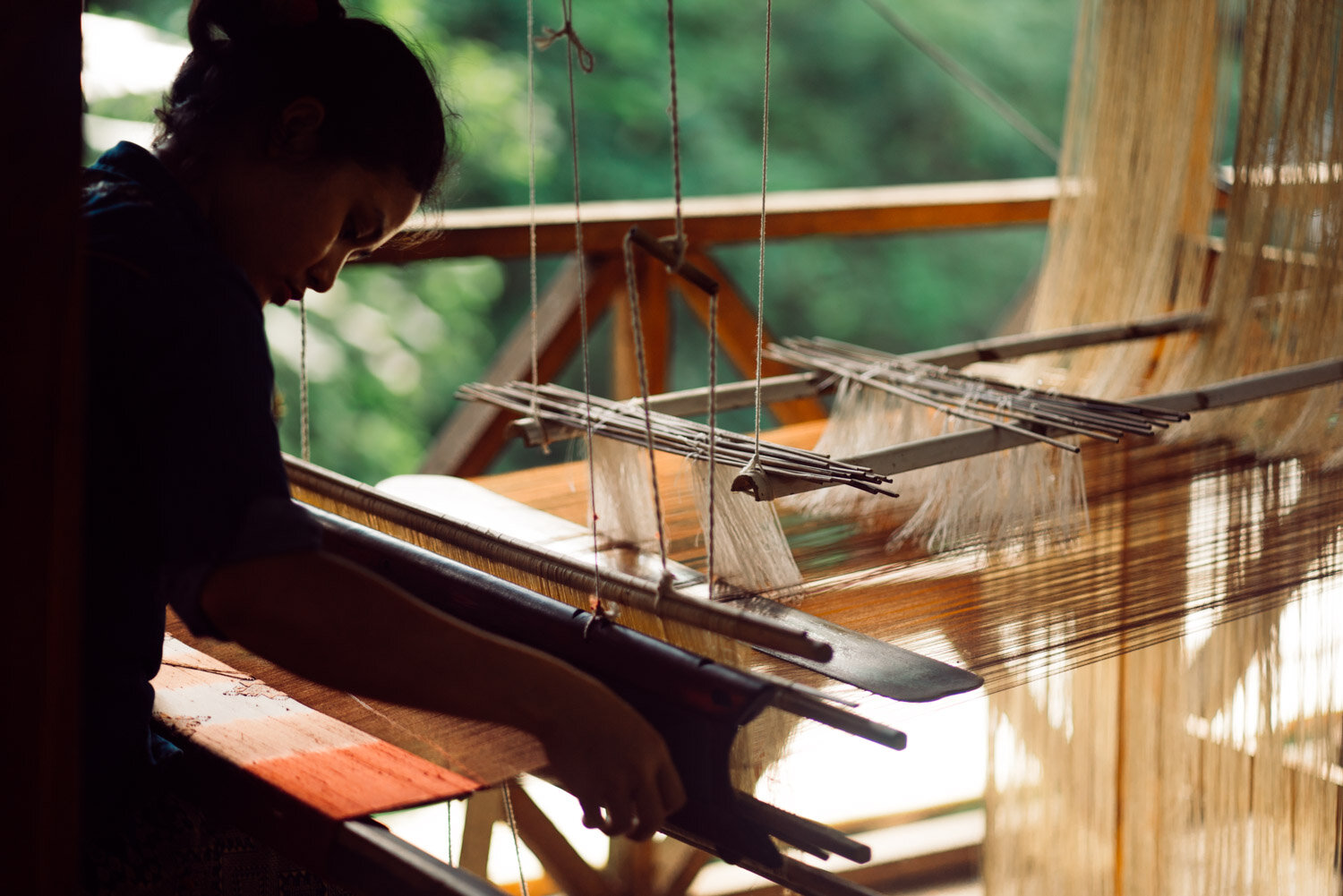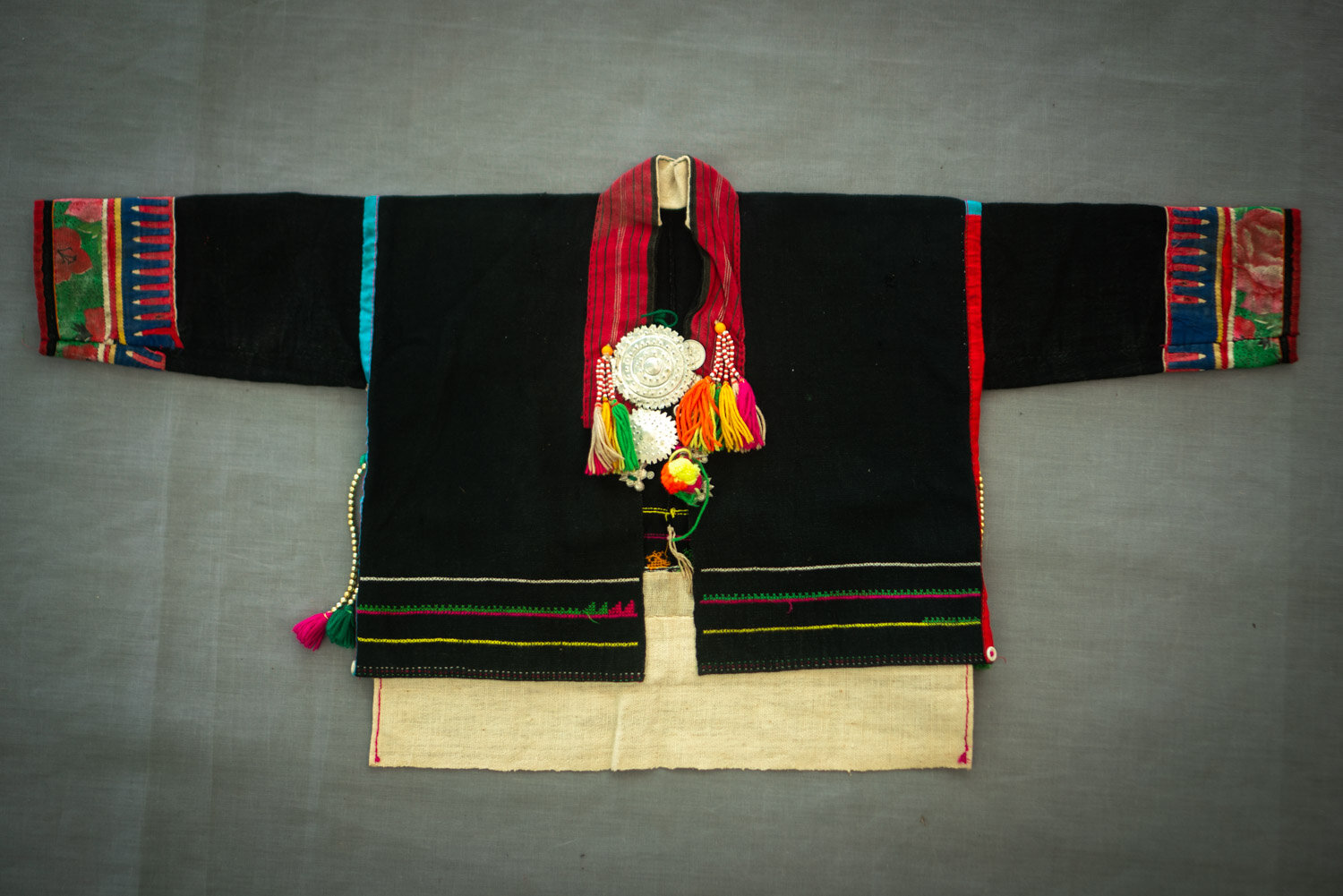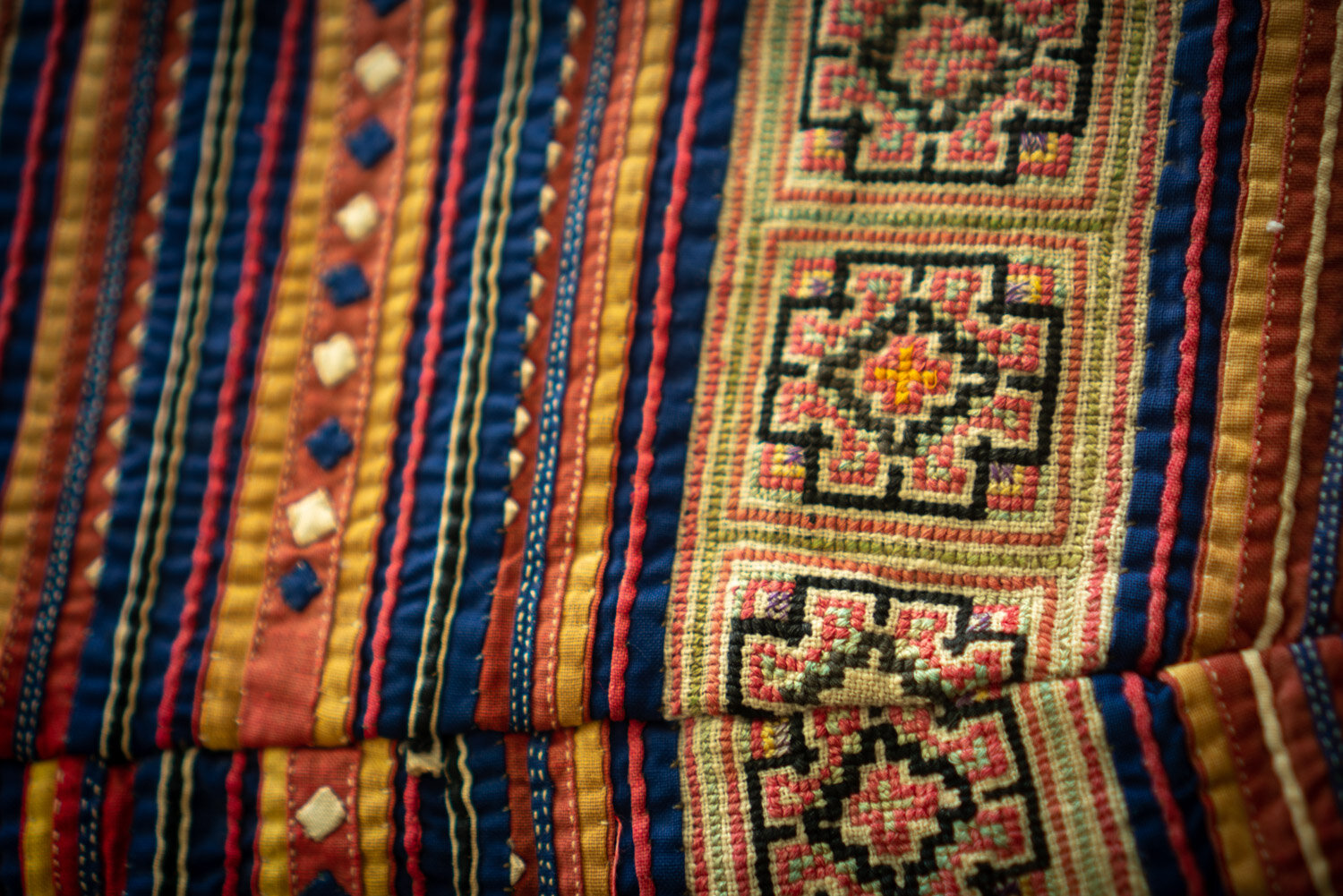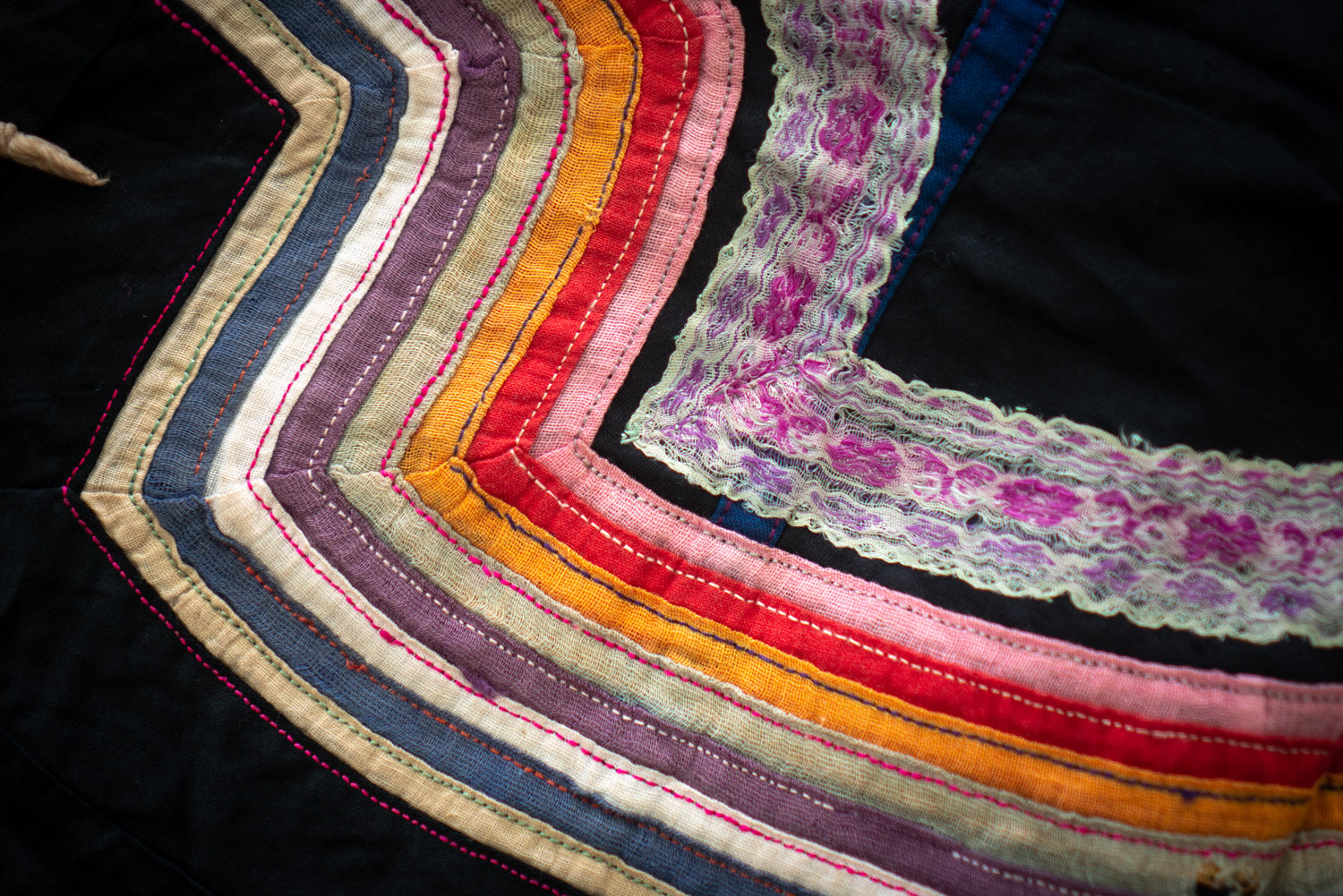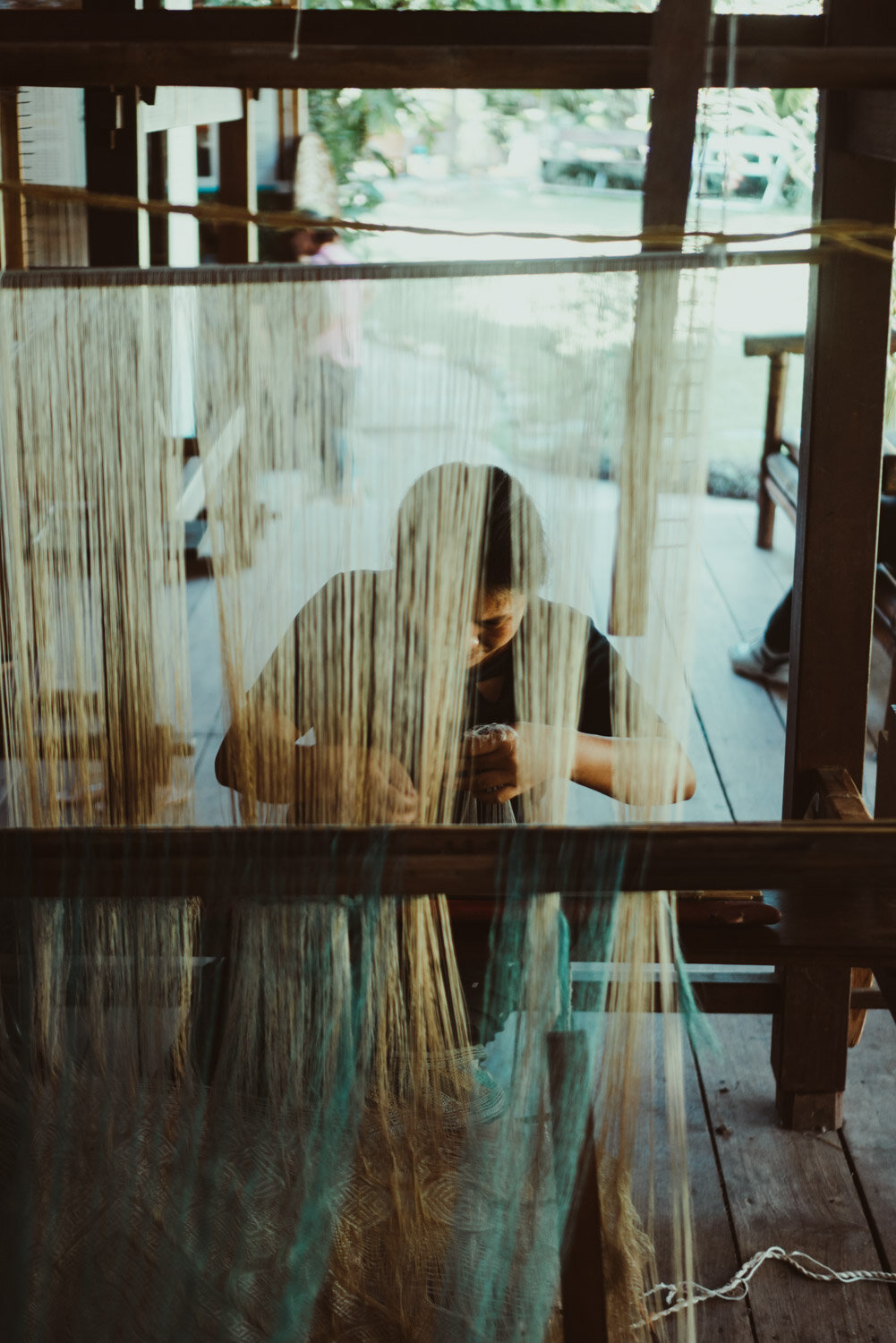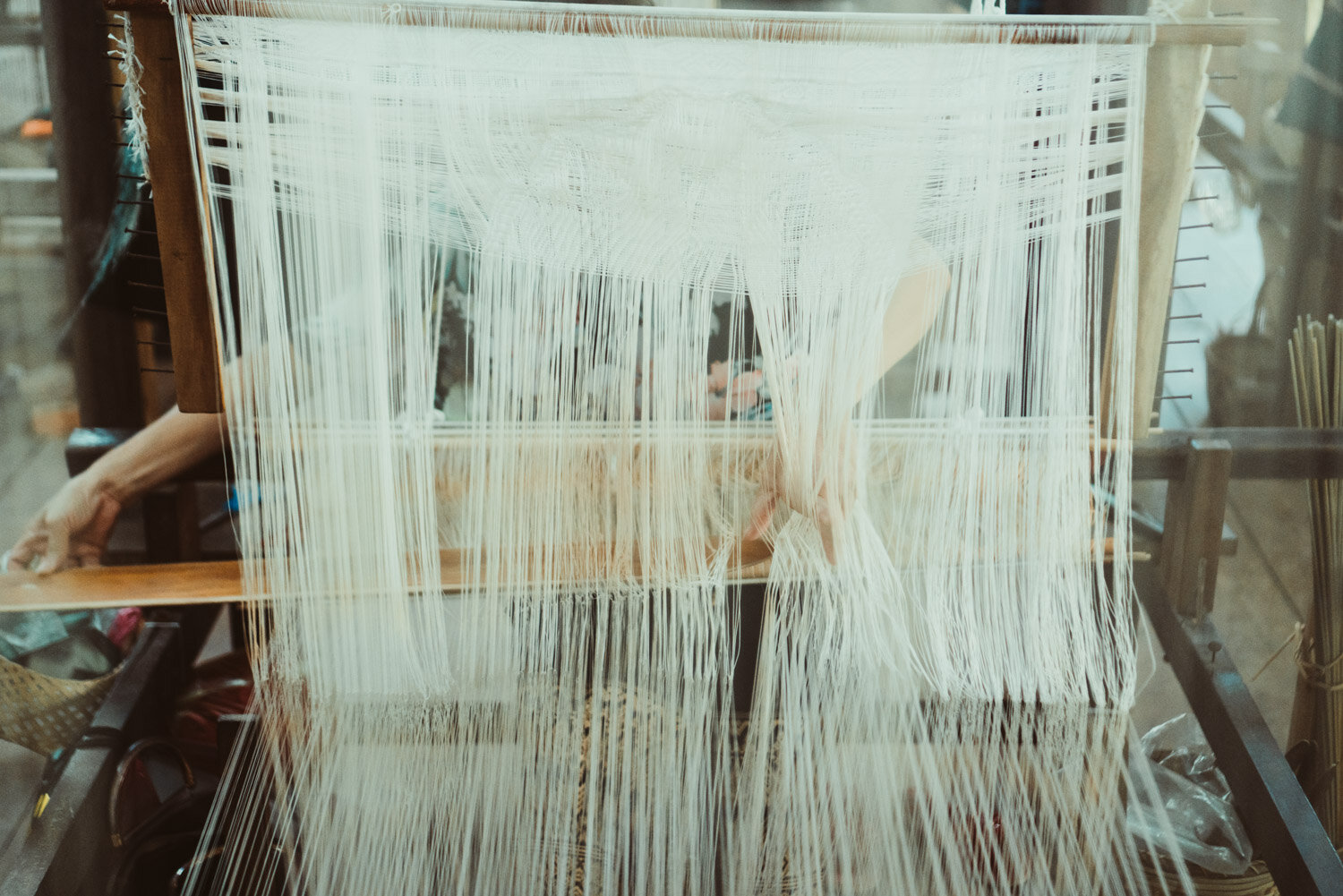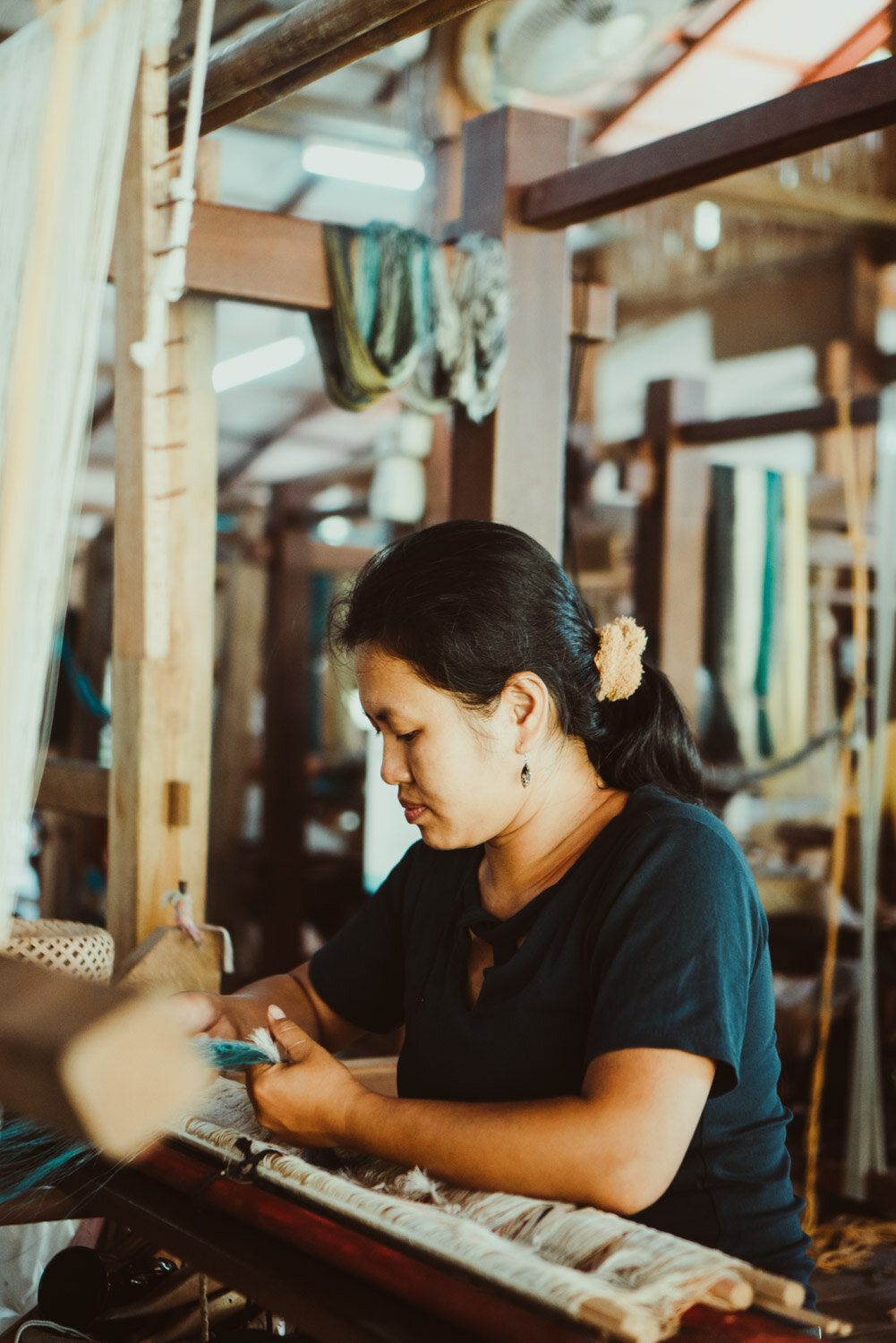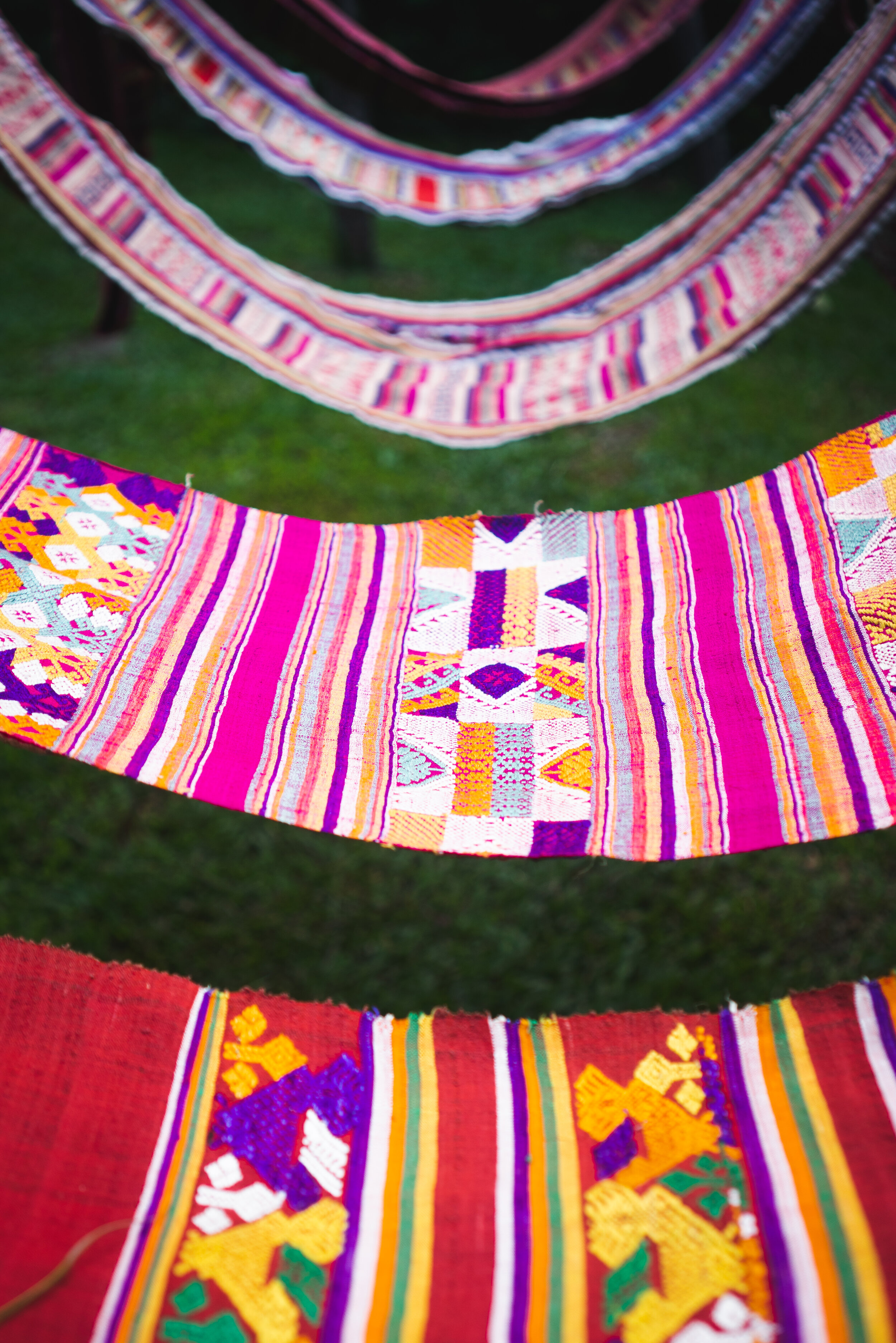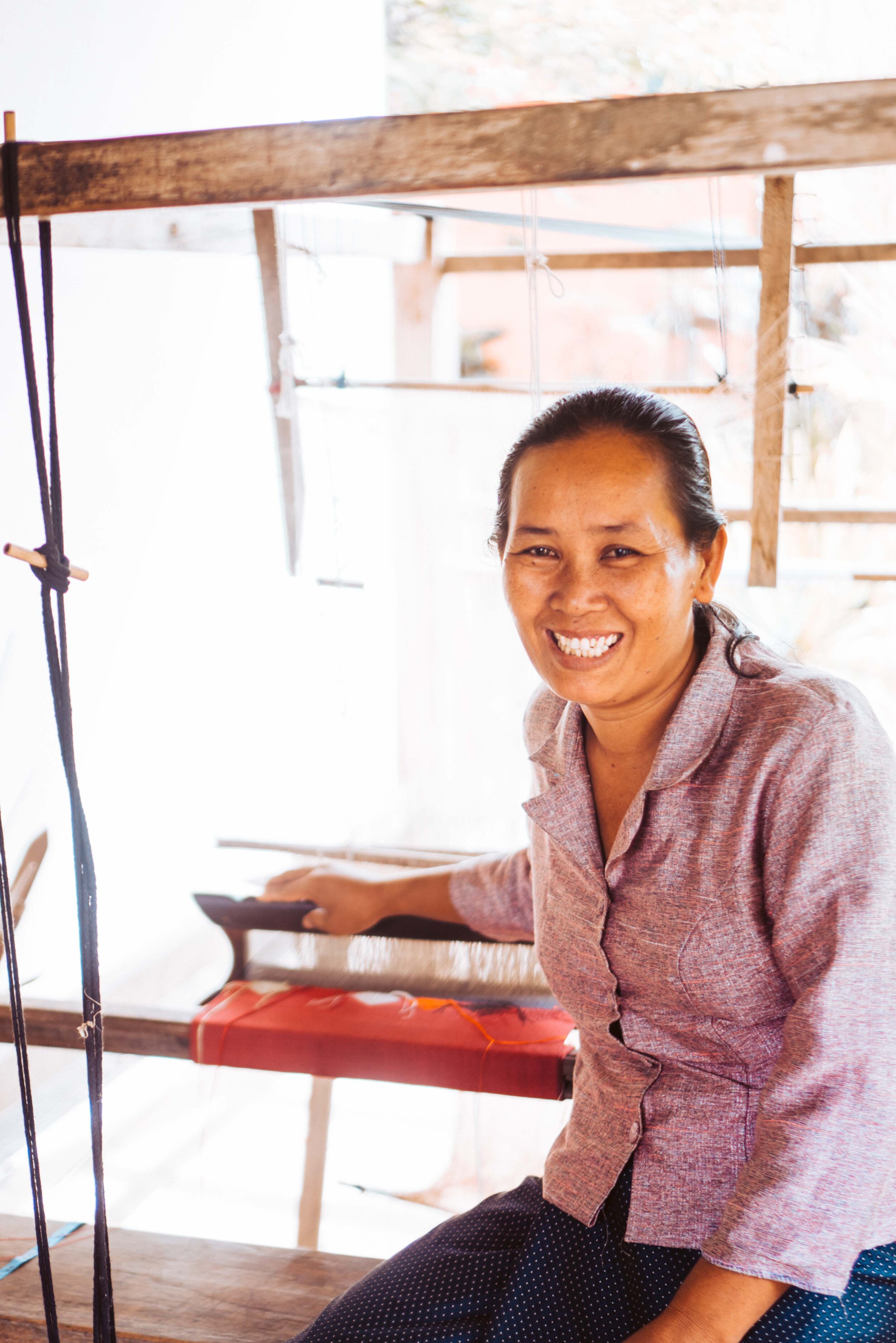In Laos there are over 49 different ethnic groups, many with distinctly unique textile and handicraft traditions. Here, textiles are as integral to cultural identity as language: a woven wall hanging preserves traditional stories with visual symbols or a certain pattern or natural dye technique in a women’s “sinh” (skirt) identifies which ethnic group someone is from. Women are the keepers of the tradition, techniques past from mother to daughter. In many villages every household makes at least some, if not all, of their income from weaving. I came here seeking to learn more about the role textiles play in cultural preservation here.
I was fortunate to create relationships with my artisans and learn about their work while I was working with Ock Pop Tok in Luang Prabang, a charming UNESCO World Heritage site settled along the Mekong River. Ock Pop Tok is a textile social enterprise working to empower women by offering economic and leadership opportunities, elevating the profile of Lao textiles and artisans internationally, and preserving Lao textile heritage through museum curation and educational programs.
